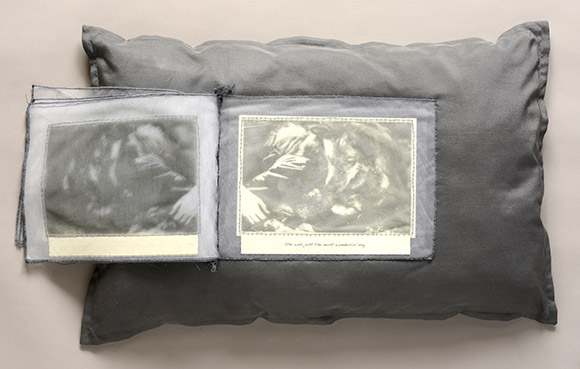The Dog’s Tale by Shu-ju Wang also deals with memory loss, but rather than the sudden onset of personality change brought on by a trauma, Wang beautifully documents, through photographs and text, her mother’s gradual decline into dementia.
The pages of the book are attached to a pillow, used here as a metaphor for memories. It also suggests sleep, often a symbol for death, and represents the gradual movement toward a suspension of consciousness and a dream-like reality. The artist’s choice of tulle for the pages, with its inherent translucency, is suggestive of how ephemeral personal memories can be. |
The story focuses on how the family acquired one of their dogs. As the tale progresses, the details of the story change slightly, the images become sharper, and the pages become more securely attached, echoing how in an impaired brain memories of the far past are clearer and more vividly recalled than more recent events.
The Dog’s Tale relates the distortion of memory on an intimate and personal level, but the same concept can be expanded to demonstrate how memory can be skewed or misrepresented in the wider arena of cultural history. The subject of war – especially the Iraqi war – can be a polarizing subject, one in which individual interpretations of this recent history can be considerably varied. |

The Dog’s Tale
Shu-ju Wang |
|
